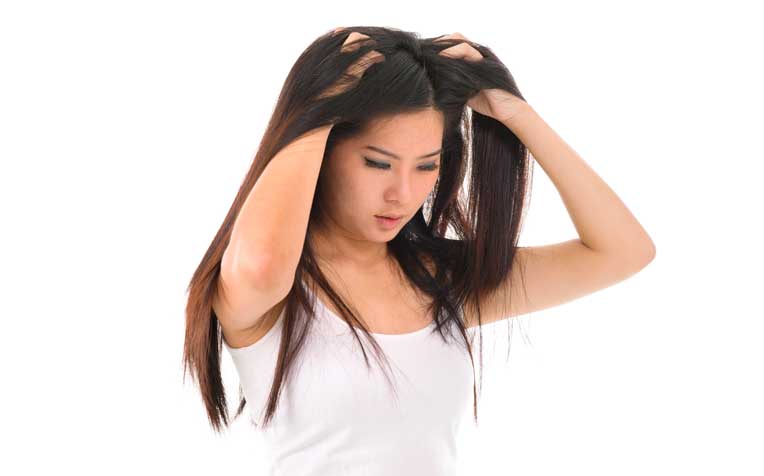HealthXchange will NEVER ask you to transfer money over a call. If in doubt, call the 24/7 ScamShield helpline at 1799, or visit the ScamShield website at www.scamshield.gov.sg.
What Causes Hair Loss?

Too much brushing or too tight braids can cause hair loss.
Causes of hair loss
Normal hair grows in cycles and goes through three stages: anagen, the growing phase; catagen, the transitional phase when hair starts to break down; and telogen, the resting phase. It is difficult to say how much hair loss per day is normal, because this varies from person to person. However, some studies indicate that losing up to 100-150 strands of hair a day is normal.
Androgenetic alopecia
Androgenetic alopecia (or androgenic alopecia) is the most common cause of hair loss in men and women. It involves the male hormone androgen. The female variation of androgenetic alopecia is known as female pattern baldness, which results in diffuse thinning all over the scalp. The condition usually affects women later in life than men, and may be genetic, although the exact cause of this pattern of hair loss is unknown.
Alopecia areata
Alopecia areata is thought to be an autoimmune condition. It occurs when your body attacks its own hair follicles. It’s often characterised by circular bald patches caused by hair falling out in clumps. The good news is that the hair usually grows back within 3-6 months even without any treatment. The condition seems to run in families. The exact cause has yet to be determined.
Scalp diseases
Scalp diseases from fungal and bacterial infection as well as hormone changes such as those experienced after pregnancy, can also cause hair loss. In addition, excessive traction on the hair, such as tight curling and braiding your hair, may also lead to hair loss. Aside from these, hair loss may be caused by certain drugs (e.g. blood thinners), or may also indicate an underlying disease such as anaemia or thyroid disease.
Care tips for hair loss
- See your doctor if you’re losing more hair than normal. In the meantime, avoid brushing your hair; instead, use a wide-toothed comb.
- You should also avoid chemical treatments for your hair so as to reduce chemical damage, and try to keep your hair short.
- Depending on the cause of hair loss, your doctor will decide on the appropriate treatment.
The above information was adapted from "Beautiful Inside Out" - The SingHealth Guide to Women's Health.
Ref: U11
Related Articles
Public Events
Get the Health Buddy App
© 2025 SingHealth Group. All Rights Reserved.















 Get it on Google Play
Get it on Google Play